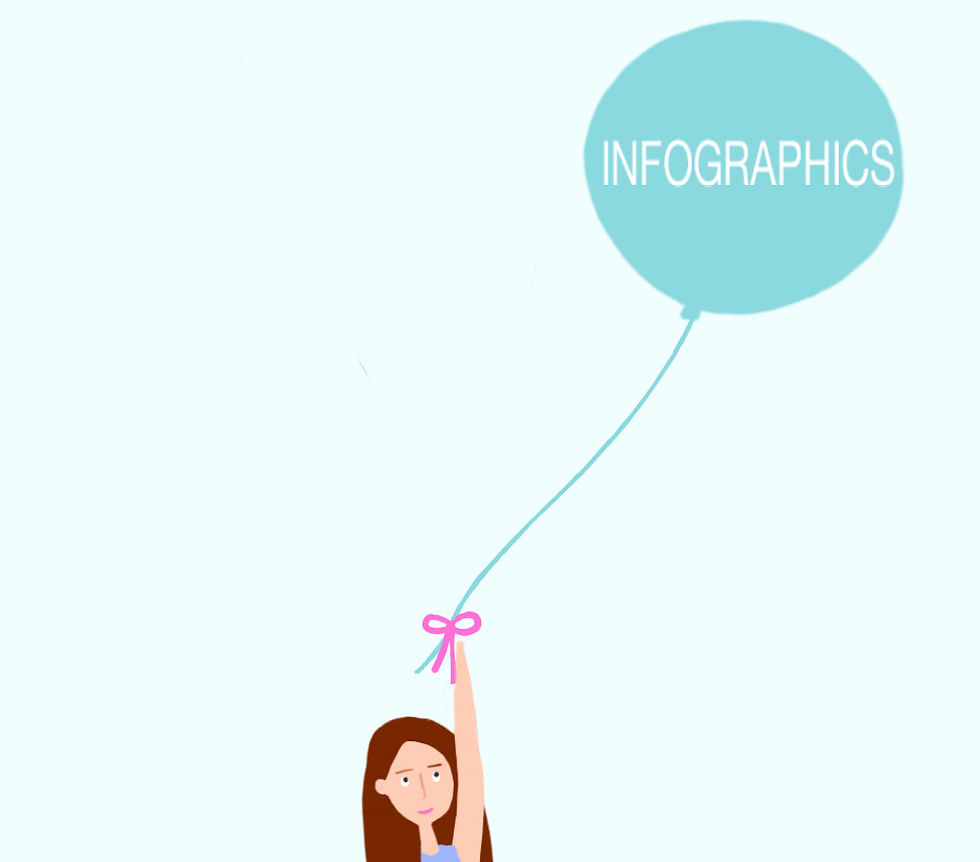6 Types of Content Marketing to Help Boost SEO and Rankings
- Katherine Kennedy
- Sep 19, 2022
- 3 min read
Updated: Dec 29, 2022

Content and Search Engine Optimization go hand in hand. They are best buds, friends for life. Trying to implement an SEO strategy without content is like trying to write without a pen and paper.
Backlinks, keywords, clicks and views, web traffic, content research, and user experience all form the many facets of good SEO, and all of those facets are built from content. Keywords are included in blog posts, backlinks are created from content, and email campaigns are used to drive people to websites to increase clicks and conversions.
Before we get stuck into the 6 top types of content marketing to boost SEO and boost rankings, here are a few terminology tips to help you navigate content and SEO like a pro:
Backlinks— also called inbound and incoming links. A backlink is a link from one website to another website. When one site cites another site as a source, that indicates that the cited website is considered a trustworthy source. The more backlinks a site has, the higher its overall authority score.
Keywords—search engine algorithms use words that are relevant to your site’s topic to decide your site rankings.
Web traffic—the number of people who visit your site and interact with the various pages
User experience—how a site performs. Whether or not users can navigate pages without errors and with low loading times.
1. Lead magnets

A lead magnet is a free resource, item, or service offering that incentivizes site visitors to supply their contact details.
Lead magnets to try out:
Newsletter
Physical merch such as t-shirts, tote bags, etc.
E-books
Trail subscription
Tip sheet
2. Video Marketing
Videos marketing uses online video to generate leads, communicate with potential customers, and engage your audience. In SEO terms, search engine algorithms like videos because they keep people on your website for longer. People like videos. They hang around longer to watch them. Therefore, SEO likes videos.
3. Social Media Marketing

Social media is web-based content that enables and encourages users to share and experience content. In 2014 Matt Cutts, previously of Google, released a video that explained that social media does not have a disproportionate effect on a site's ranking. The SEO word has taken this means that likes, retweets, and followers will not affect your rankings, but it does have an invaluable indirect impact. More shares on social media mean more backlinks, more potential customers, more clicks, and better rankings.
Social media sites to take advantage of in your SEO quest:
4. Blogging
A blog is an informal, self-published online content platform. Blogs can consist of a range of topics, styles, and intents, and it is vital to SEO. Blogs may have started as a type of online journal, but they have evolved into a leading business tool. Small and large businesses use blogging to target keywords, encourage backlinks, and rank higher in search engines to engage an audience.
5. Infographics

An infographic is a visual representation of data and information designed to simplify topics and engage readers. Infographics are easily shared on social media, and the information they share can be taken in at a glance. . Well-crafted, beautiful, and informative infographics can also help with SEO through backlinks and better image search rankings.
6. Email Marketing
Email marketing is a direct marketing campaign where sales, new products, and other promotional materials are distributed to customer contact lists. Email marketing is considered beneficial as it’s low cost, improves customer relationships, and has a high ROI with a reported $36 return for every $1 spent. High-quality email marketing drives clicks, notifying subscribers and potential customers about your site, products, and services. It answers questions before they are asked and increases your brand perceived value. The emails themselves will not form part of your content SEO strategy, but the engagement driven by these friendly reminders will.

Comentarios